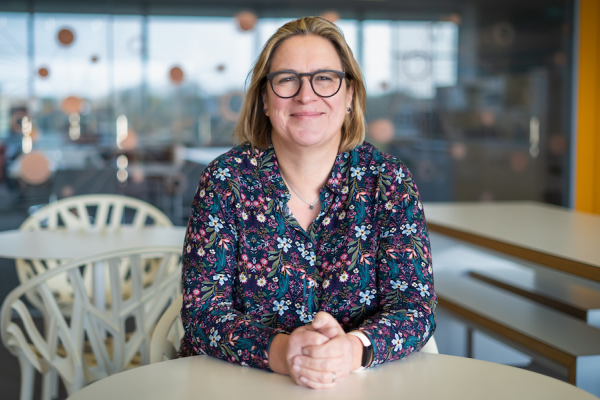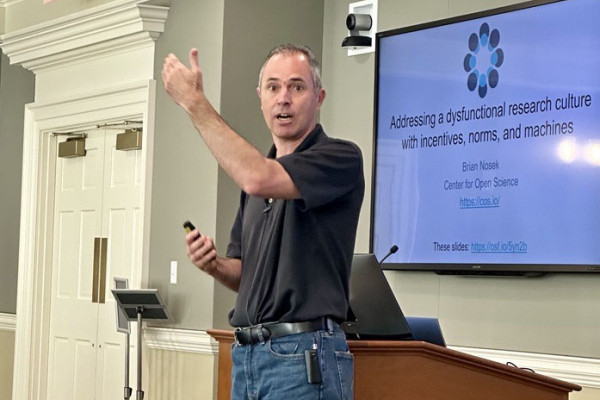NSF Official Highlights Agency’s Efforts to Support Emerging Technologies

In a world of accelerating change, a recently launched effort by the National Science Foundation aims to identify and support emerging technologies while ensuring that they “address pressing societal economic challenges.”
This was the message of Chaitan Baru during an appearance at the University of Virginia. Baru joined the National Science Foundation in 2022 following 25 years at the San Diego Supercomputer Center. He spoke at UVA as part of the recently launched Distinguished Lecture Series from the School of Data Science.
Baru serves as senior advisor in the Directorate for Technology, Innovation, and Partnerships, the NSF’s first new directorate in more than three decades. The directorate was authorized as part of the 2022 CHIPS and Science Act, which aims to bolster U.S. competitiveness.
Baru laid out the current state of technology in explaining the work of the new directorate.
“Things are just moving much faster,” he said, describing the cycles of technological change, “and while that’s happening, there is more demand for societal impact.”
He described some of the programs that the new NSF directorate has supported since its creation last year. While the areas covered by the directorate span a range of topics, there is a common denominator.
“We are not organized by any discipline,” Baru said of the directorate. “We are organized by this notion of wanting to move research into impact.”
While not organized around one specific discipline, the directorate does focus on three priority areas: accelerating innovation and technology ecosystems; establishing translation pathways; and working to engage a diverse national talent pool.
Baru said that this new directorate is also supporting projects that, historically, the NSF hasn’t traditionally funded.
“A number of these things are unusual for NSF, in the sense we are funding people in policy,” he said, citing researchers working in economics and on predictions of technology.
Baru noted that the directorate is also interested in analyzing the roots of successful innovation and regional factors that could have an impact.
“What makes innovation happen and what sustains innovation,” Baru said in describing one of the directorate's priorities. “We’re very interested in this idea of what is the interplay between some of the cultural aspects in any region and the innovation that happens.”

